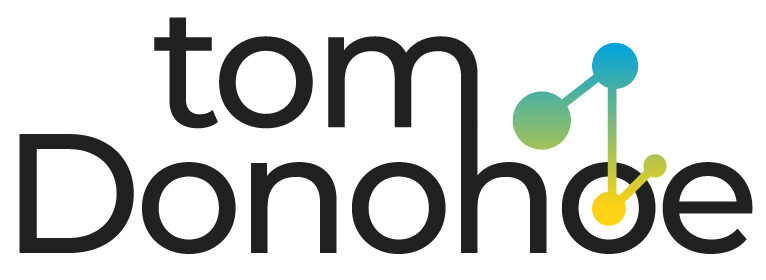The Ultimate List Of Free Keyword Research Tools

Keywords are an essential part of your content marketing strategy and SEO strategy. You need to use the correct keywords related to your website content to drive leads, sales, and ultimately revenue.
New research has found that only 30% of small businesses in the U.S. use SEO for their marketing. Many businesses use keywords but need to use them better or the right keywords for their audience.
Keyword research is essential. This will help you choose keywords most likely to be searched online. This blog will provide a complete list of keyword research tools to help you choose profitable keywords.
Why is keyword research so important?
A keyword is any term or phrase people use to search for information about a topic.
Keyword Research is essential as it can help you get your brand noticed by people who are interested in your product or services. It involves researching and selecting words, terms, and phrases that users search for when searching for products or services.
Keyword research lets you choose the most relevant keywords for your target audience. Search engines such as Google can then understand your pages and suggest your website to users who are searching for those terms.
Keyword research, done correctly, can lead to:
Get the right visitors to your website: Visitors who are not the right type will not click on your ads or make a purchase. Although it may turn into leads, it could also be of the wrong type or low intent.
Find keywords with high search volumes with low terms.Keyword Research helps you identify and maintain phrases with good search volume and ignore keywords with low volume.
Identify content holes: This is more frequent than you might think. When we design websites, for example, the designer often leads the process or the CEO decides what content should be included and where. However, this is not always the content that users and potential customers want. Using keywords will avoid any disconnect between your content & your audience.
Direct Content Creation: By understanding the keywords people search for, it is possible to tailor content to meet those search needs.
Use keywords that are within your reach. Be sure to choose keywords that are realistic and not too competitive based on your SEO presence. Keyword research allows you to distinguish between transactional keywords which are highly competitive to rank for and informational keywords that might be of value to your business.
If you are interested in learning more about search engines and the three pillars that make up SEO, please watch our video.
Long-tail and short-tail keywords
There are two types of keywords: long-tail and short-tail. There is a major difference between them: while short-tail keywords generate more individual traffic, 70% of search traffic comes from long-tail keywords.
Because searchers are searching for specific results, they tend to be more precise with long-tail searches. For example, “digital marketing” would be a short-tail term, while “What is Digital Marketing?” is a long-tail phrase.
How to conduct keyword research
These are the essential steps to take on-page SEO.
Choose a topic to study: Think about the design of the website you would like this content to appear on. Consider imagery, headlines and CTAs.
Brainstorm keywords: Search for keywords with similar meanings related to a topic. At this stage, it is important to prioritize quantity over quality.
Check keyword difficulty and value: Collect keyword data from SEO tools to determine how valuable keywords are and whether they can be ranked.
Prioritize keywords Decide which keywords are most important and prioritize the keywords you want to concentrate on.
Select primary, secondary and tertiary keywords. Only one keyword, but a few variations. A primary keyword might be “content marketing?” and a secondary keyword would probably be “how to create great content”.
Create topic clusters: More than one keyword can be helpful in creating content and topic clusters. Check out the SEMRush example for SEO.
What are the top keyword research tools?
Let’s now look at some free tools that can be used to do keyword research.
Google Keyword Planningallows users to type a keyword, and provides suggestions as well as search volumes. You will see specific search volumes if you are a Google Advertiser. You will not see broad ranges. Filters can be used to personalize your search.
Tip: Google’s autosuggests rely on the position of your cursor. Move it to the beginning, middle and end phrases to get more suggestions. You may need to add a space (or asterisk) to your cursor to see the complete list.
Keyword Searcher is an extension for Chrome that allows you to see search volume for a query in Google and its autosuggestions.
Keywords Everywhere, another free Chrome plugin, can be used with Google Keyword Planner or other search engine interfaces. You can see Google’s’related keywords’ as well as ‘People Also Search For Keywords. The free version also provides Insight reports for YouTube search, tags, and analysis of URLs. It covers a wider range of search volumes and provides more precise information.
Keywords Everywhere, another Chrome plugin that is free, can be used with Google Keyword Planner or other search engine interfaces. You can see Google’s’related keywords’ as well as ‘People Also Search For Keywords. The free version also provides Insight reports for YouTube search, tags, and analysis of URLs. It covers a wider range of search volumes and provides more precise information.
Analyse keywords of competitors This allows you to see which keywords are being used by your competitors. This research can be done using either a paid (and premium) tool such as SEMrush, Ahrefs and Moz or a cheaper tool such as Ubersuggest (more details below) and SE Ranking. SEMrush, a popular competitor keyword analysis tool, can be used to input a URL and will give you a list with the most valuable keywords.
Ubersuggest provides valuable data for keyword research. It displays search volume, SEO difficulty, paid difficulties, and CPC. It also provides keyword ideas and content ideas, as well as demographics.
It is becoming more important to rank your content higher than your competitors. SEO keyword research and strategy can help you do this. These keyword research tools are free and can provide valuable insight that will help you get closer to the #1 spot on Google.





